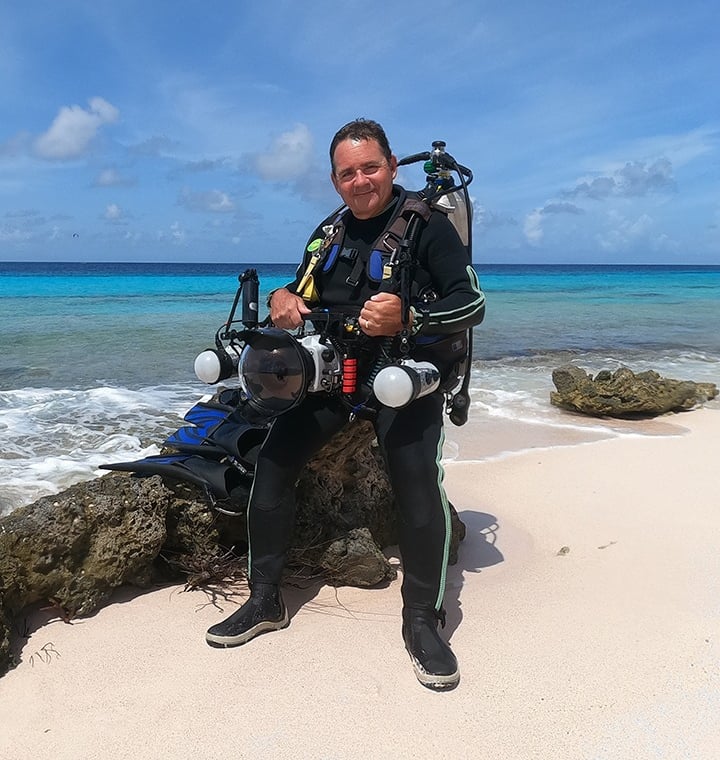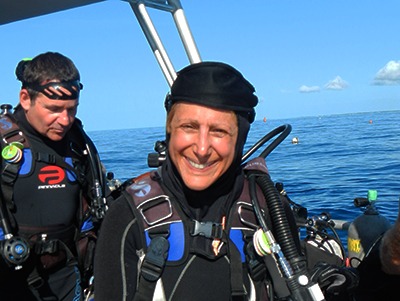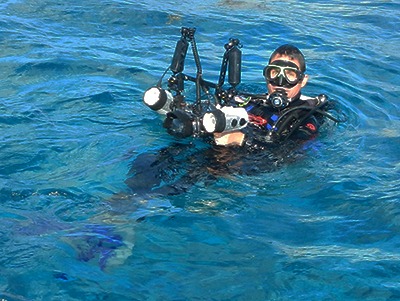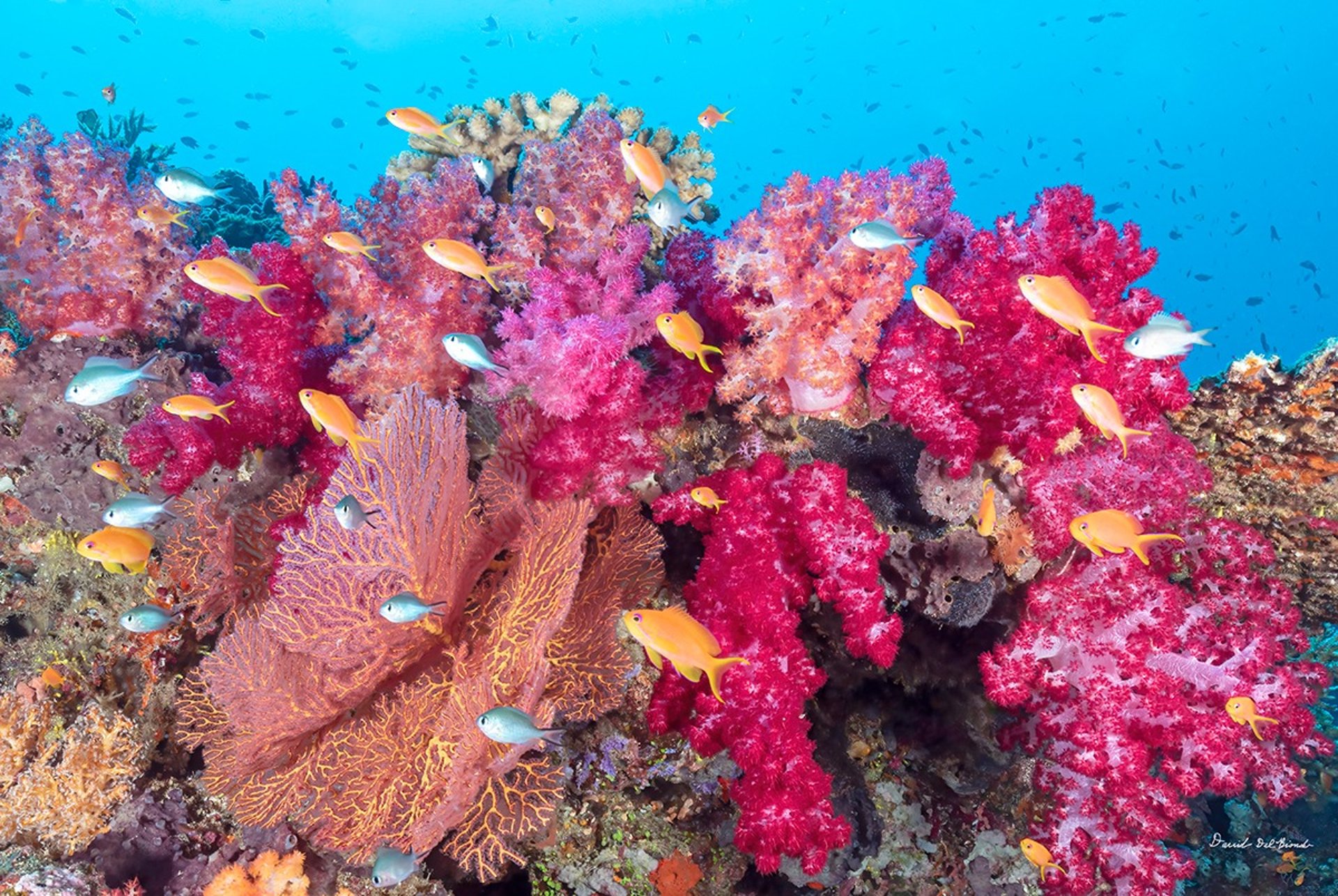Biography
David has been an underwater photographer for the past 22 years and a certified diver since 1980, performing his certification dives in the cold waters of Vermont. David wanted to share his adventures as a SCUBA diver so he purchased a Canon camera along with an underwater housing, quickly realizing his passion for underwater photography. David has traveled to Cozumel Mexico for private underwater photography lessons with Sport Diver Magazine editor and photographer Armando Alentado. He has also attended several seminars conducted by Kathy Church of Grand Cayman. David also frequently dives with world renowned underwater photographer Stephen Frink of Key Largo, FL including attending his Digital Master Classes.
David is currently using a Canon 7D Mark2 Camera with a variety of lenses to capture his images. The camera is housed in an Ikelite underwater housing, along with 2 Ikelite DS161 movie strobes. Mounted on the top of the camera housing is a GoPro Hero 9 along with a Sola 1200 video light for video capabilities. David and his wife Cookie have traveled the Caribbean, South Pacific and Red Sea. Their journeys have brought back incredible landscape and color that the oceans have to offer. Always keeping respect for the underwater environment and sea life a priority. David and Cookie hope you enjoy their underwater photography as much as they enjoy capturing the pictures.
Download a PDF copy of David's Biography







Respecting the underwater environment and its inhabitants is essential for maintaining a healthy ecosystem. Practicing good buoyancy and refraining from touching or kicking the coral ensures that these fragile structures remain intact. It's crucial to avoid disturbing marine life, as many sea creatures possess a protective mucus coating that shields them from harmful bacteria, fungi, and viruses. This mucus serves as a vital barrier that keeps them safe as they navigate their aquatic surroundings. When humans come into contact with marine animals, we risk removing this protective layer, leaving the creatures vulnerable to infections. Additionally, touching sea life can provoke a defensive response, which may lead to unexpected and potentially dangerous encounters, including bites. By observing and respecting wildlife from a safe distance, we contribute to the preservation of the ocean's delicate balance.
Respect the oceans and what lives in them.
Navigation:
Capturing the beauty of underwater landscapes.
Phone:
(860) 227-8664
Copyright © 2025, Ocean Visits Underwater Photography


Email:
david@oceanvisits.com
Information:
File Upload (Coming Soon)
